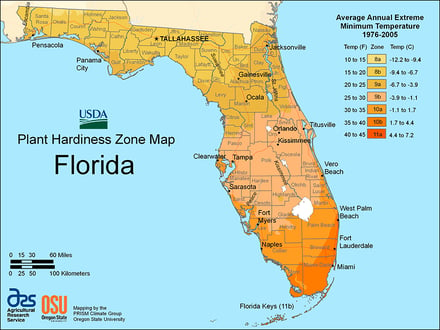
Home / Here on Earth / Guide to Florida Friendly Landscaping
What is Florida Friendly?
Florida Friendly Landscaping is a program intended to teach Floridian landscaping and lawn care practices that are both good for the environment and good for them. It highlights the nine key principles of caring for and maintaining your landscape.
Why Florida Friendly?
This program specially integrates healthy, Florida-friendly landscaping practices into your regular lawn care maintenance. These principles keep in mind the environment AND your wallet.
The 9 Florida Friendly Landscape Principles:
The Florida Friendly website explains that there are nine principles to landscaping that one should follow. They outline them as such:
-
- Right Plant, Right Place– Where you place your plants is just as important as which plants you pick. Placing a plant in the wrong place increases your maintenance costs and increases the likelihood your plant will fail, cause damage, or die.
- Water Efficiently– Efficient watering is not as easy as turning the irrigation system on. Use proper settings, adjust for the weather, and keep up with system repairs to ensure you are getting the most for your water.
- Fertilize Appropriately– Fertilizer propels plants to grow faster and stronger than they would normally by feeding them nutrients they may be lacking. Giving them these missing nutrients allows your plants to grow more flowers or fruits (depending on the plant) and even makes them look healthier.
- Mulch – Mulch retains moisture and blocks out weeds, meaning your plants will flourish if surrounded by it. It also lessens a load of mowing, as grass does not grow when mulch is atop it.
- Attract Wildlife – Investing in fruiting or flowering plants to attract local wildlife has multiple benefits. Inviting in beneficial wildlife allows your pests' natural predators to take care of pest control.
- Manage Pests Responsibly – As mentioned in the last bullet, pests are an obstacle you will always need to deal with. Inviting these pests’ natural predators by attracting wildlife helps create a natural pest control program. However, there are cases where additional intervention is necessary.
- Recycle Yard Waste – Dealing with waste is an unavoidable part of managing a yard. Luckily, a healthy and simple use for yard waste is to recycle it! Yard waste is organic, meaning it can be broken down into nutrients and returned to your lawn to help it thrive more.
- Reduce Storm Water Runoff – Runoff water from rainstorms can carry a multitude of substances away from your plants such as pesticides or fertilizers. While these are safe for plants, they are hazardous once they make it into the runoff.
- Protect the Waterfront – Protection against stormwater runoff is tied into this principle. Create a natural wall by using barrier plants around your waterfront. This protects against storm runoff while maintaining curb appeal.
- Right Plant, Right Place– Where you place your plants is just as important as which plants you pick. Placing a plant in the wrong place increases your maintenance costs and increases the likelihood your plant will fail, cause damage, or die.
Florida Friendly Plant Suggestions
Some think that utilizing native plants limits their design aspirations. However, plenty of colorful, endearing, and eye-catching native plants are available to spice up your landscape while helping the ecosystem.
.jpg?width=300&height=223&name=DTEL-%20Blog%20(2).jpg)
1. Cross Vine:
Also sometimes called Trumpet Flowers, these plants are identifiable by their flashy orange bell blossom.
They are well-off in any soil type, can handle drought conditions, and even attract hummingbirds and pollinators such as bees!
.jpg?width=300&height=223&name=DTEL-%20Blog%20(3).jpg)
2. Coral Bean:
Coral bean plants are eye-catching and fun, and they also withstand a lot of the harsher weather conditions Florida has to offer.
They will grow during droughts and while directly exposed to the sun.
3. Tampa Vervain:
.jpg?width=300&height=223&name=DTEL-%20Blog%20(4).jpg)
Tampa vervains are very cute and very hardy plants!
But rather than tolerating extreme conditions, these plants prefer them.
They grow best in full sunlight, dry clay soil, and little water. So, they are best saved for sun-exposed patches of lawn where a color splash would do nicely.
Conclusion
The Florida Friendly landscaping principles are easier to learn than they are to practice. These principles are guidelines, meant to be used along with regular professional maintenance services. There is helping to come with that, though. Landscaping professionals are aware of Friendly Florida landscaping Principles, but their exposure to various parts of Florida warrants them qualified to give you that yard-specific advice you need. They also prioritize native vegetation when making decorative decisions, so they can assist with the nine principles while benefiting Florida and your wallet.
To find out more about Florida Friendly, visit https://ffl.ifas.ufl.edu/.

